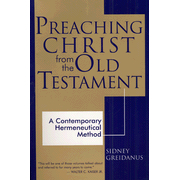“Thank God for Sunday!”
I think the first time I ever heard the phrase, “It’s Friday, but Sunday is Coming!” was from a message that Tony Campolo delivered in Chapel in the mid 1980’s at Multnomah School of the Bible (Now called Multnomah University in Portland, Oregon).
Yesterday, I had a “procedure” a nicer and more sweet sounding term than “surgery” at a hospital in Irvine, CA. I was recently diagnosed with Cancer – Squamous Cell Carcinoma – that started on the back of my tongue and has resulted in a huge mass the size of a lemon in my neck.
I had a “G-tube” inserted in my stomach because doctors and former patients I’ve consulted with say that weeks 3-6 of radiation and chemotherapy will be “brutal” – my throat will hurt “200 times worse than strep throat” (Doctor’s exact words). Also, that I will not be able to eat or drink anything orally during that time because of the pain. I recently talked with a friend of a friend who had the exact same cancer two years ago (and by God’s grace is cancer free now), and he lost 80 pounds during treatment and had the G-tube “procedure” in a weakened state mid-way through treatment. His advice was “get the G-tube NOW!”
So yesterday – with a tube in my nose that went to my stomach and feeling like I was battling in a kick boxing match with Chuck Norris and Jackie Chan I was thinking of the aforementioned phrase by Tony Campolo, “It’s Friday, but Sunday is coming.”
During surgery – I was awake during the “procedure” and in a lot of pain – I tried quoting Bible verses and singing hymns (I can never remember the new songs – only classics like “And Can It Be; “How Great Thou Art”; and “Amazing Grace”); and trying to take my focus off of the pain. Quoting verses or hymns just didn’t seem to work – I couldn’t concentrate on anything other than the pain.
So the Holy Spirit began take my focus off of my pain and on to Jesus – what He did for me on the cross 2000 years ago. I visualized the torture He endured – the lashes; the insults; the crown of thorns; suffocating; the blood, sweat, and tears. Ultimately being unrecognizable, forsaken, and dying for my sins. He was perfect and never did anything wrong – and yet He volunteered to endure more torture than I could imagine. I endured what seemed like torture for 45 minutes – and now its done. I didn’t accomplish any atoning work for anyone. Yet His righteousness was imputed to me, and His voluntary sacrifice in payment for my sin were absolutely necessary to make me right with a Holy and perfect God.
Jesus was crucified on a Friday, but rose again on Sunday. I can’t even come close to comparing my “torture” with His. However, I do have a deeper appreciation for what He endured in His 33 years on earth: facing temptation without sinning; completely obeying God the Father in every way; and becoming the “Lamb that was slain” so that He could be my Savior and Lord.
I don’t know what will become of my cancer, I hope and pray that God will take it away. One thing I do know, is that He has already wiped away my sin, and that everything He allows is for my good and ultimately for the Glory of His Son. I hope and pray that God will use my cancer for the furtherance of the glorious Gospel. However, I know that even if I’m silent the rocks will cry out of His glorious works. I know that I am weak and frail and but a mere sinful vessel. I also know that Jesus was weak, suffered, and died in my place, and rose from the dead on Sunday. He is so strong that no one and nothing can defeat Him. Today is Friday. But Sunday is coming! Last time He came as a humble servant. Next time He comes as King!
Today may be a tough day for you my friend. But remember that anyone who comes to Him will not be cast away. Our confession of sin in exchange for His righteousness. We can never earn our salvation – but Jesus has earned the right to be trusted and believed in unto salvation. “The righteous for the unrighteous, to bring us to God.”
Today, I’m doing better, but will continue down a rough road with radiation and chemotherapy ahead. However, I am grateful that because of the righteous life, death, burial, and resurrection of my Lord and Savior Jesus Christ, that no matter how many “Friday’s” I will have in this trial – that because of Jesus finished work on the cross, my future hope is that “Sunday is coming!”
Some Scriptures God The Holy Spirit Used To Comfort Me in my Pain:
“My God, my God, why have you forsaken me? Why are you so far from saving me, from the words of my groaning?” – Psalm 22:1
“For he grew up before him like a young plant, and like a root out of dry ground; he had no form or majesty that we should look at him, and no beauty that we should desire him. He was despised and rejected by men; a man of sorrows, and acquainted with grief; and as one from whom men hide their faces he was despised, and we esteemed him not. Surely he has borne our griefs and carried our sorrows; yet we esteemed him stricken, smitten by God, and afflicted. But he was pierced for our transgressions; he was crushed for our iniquities; upon him was the chastisement that brought us peace, and with his wounds we are healed. All we like sheep have gone astray; we have turned—every one—to his own way; and the Lord has laid on him the iniquity of us all. He was oppressed, and he was afflicted, yet he opened not his mouth; like a lamb that is led to the slaughter, and like a sheep that before its shearers is silent, so he opened not his mouth. – Isaiah 53:2-7
Yet it was the will of the Lord to crush him; he has put him to grief; when his soul makes an offering for guilt, he shall see his offspring; he shall prolong his days; the will of the Lord shall prosper in his hand. Out of the anguish of his soul he shall see and be satisfied; by his knowledge shall the righteous one, my servant, make many to be accounted righteous, and he shall bear their iniquities. Therefore I will divide him a portion with the many, and he shall divide the spoil with the strong, because he poured out his soul to death and was numbered with the transgressors; yet he bore the sin of many, and makes intercession for the transgressors. – Isaiah 53:10-12
Therefore, we are ambassadors for Christ, God making his appeal through us. We implore you on behalf of Christ, be reconciled to God. For our sake he made him to be sin who knew no sin, so that in him we might become the righteousness of God. – 2 Corinthians 5:20-21
Since then we have a great high priest who has passed through the heavens, Jesus, the Son of God, let us hold fast our confession. For we do not have a high priest who is unable to sympathize with our weaknesses, but one who in every respect has been tempted as we are, yet without sin. Let us then with confidence draw near to the throne of grace, that we may receive mercy and find grace to help in time of need. – Hebrews 4:14-16
For to this you have been called, because Christ also suffered for you, leaving you an example, so that you might follow in his steps. He committed no sin, neither was deceit found in his mouth. When he was reviled, he did not revile in return; when he suffered, he did not threaten, but continued entrusting himself to him who judges justly. He himself bore our sins in his body on the tree, that we might die to sin and live to righteousness. By his wounds you have been healed. For you were straying like sheep, but have now returned to the Shepherd and Overseer of your souls. – 1 Peter 2:21-25
For it is better to suffer for doing good, if that should be God’s will, than for doing evil. For Christ also suffered once for sins, the righteous for the unrighteous, that he might bring us to God, being put to death in the flesh but made alive in the spirit. – 1 Peter 3:17-18
Beloved, do not be surprised at the fiery trial when it comes upon you to test you, as though something strange were happening to you. But rejoice insofar as you share Christ’s sufferings, that you may also rejoice and be glad when his glory is revealed…Yet if anyone suffers as a Christian, let him not be ashamed, but let him glorify God in that name [the name of Christ]. – 1 Peter 4:12-13, 16
Since therefore Christ suffered in the flesh, arm yourselves with the same way of thinking, for whoever has suffered in the flesh has ceased from sin, so as to live for the rest of the time in the flesh no longer for human passions but for the will of God. – 1 Peter 4:1-2
My little children, I am writing these things to you so that you may not sin. But if anyone does sin, we have an advocate with the Father, Jesus Christ the righteous. He is the propitiation for our sins, and not for ours only but also for the sins of the whole world. 1 John 2:1-2
The sting of death is sin, and the power of sin is the law. But thanks be to God, who gives us the victory through our Lord Jesus Christ. Therefore, my beloved brothers, be steadfast, immovable, always abounding in the work of the Lord, knowing that in the Lord your labor is not in vain. – 1 Corinthians 15:56-58



